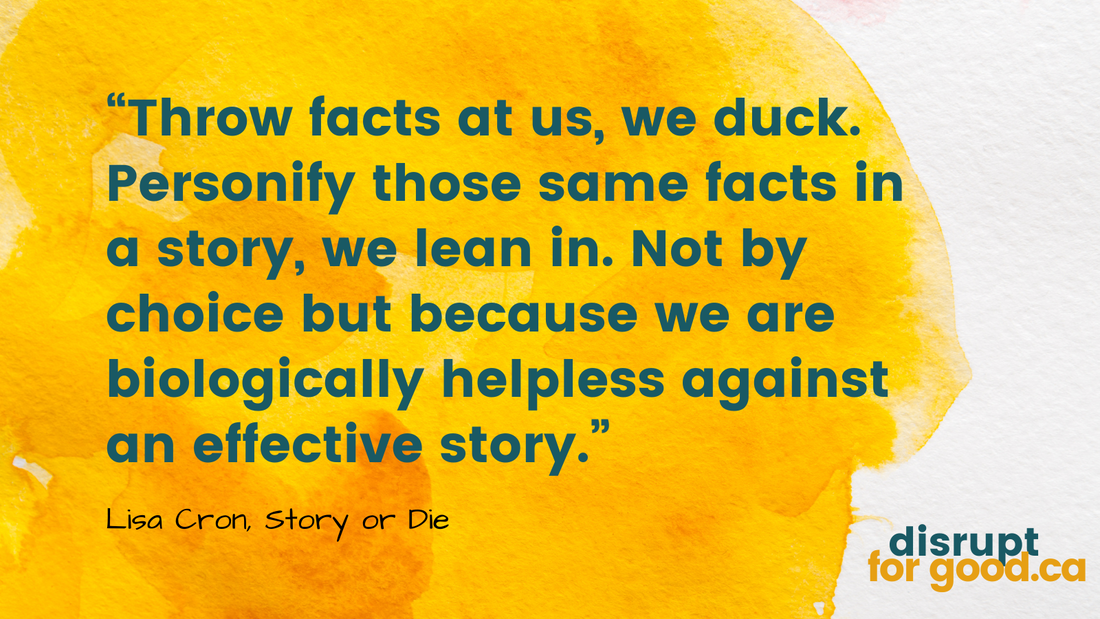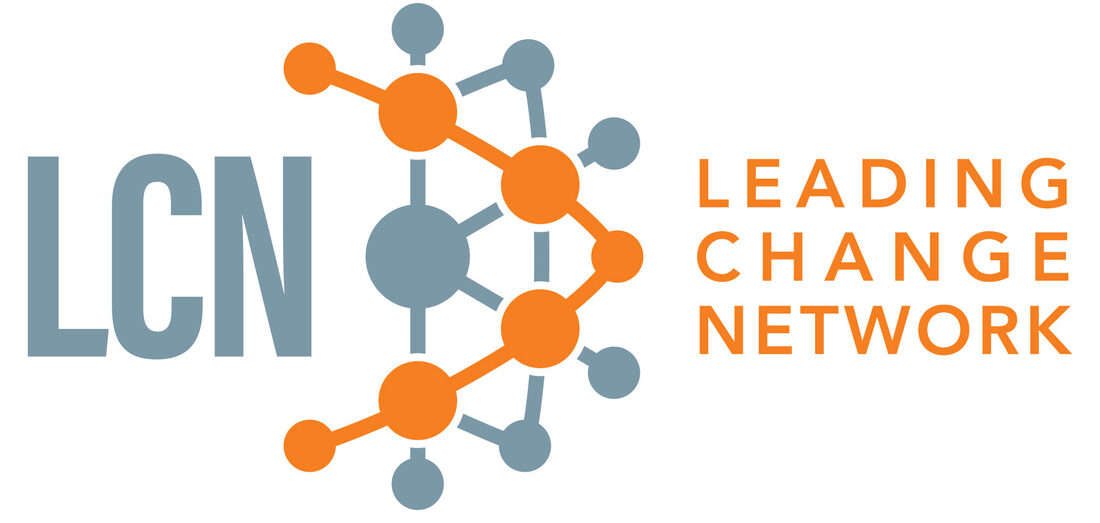|
Soooo, there’s a lot going on, locally and globally. As one Twitter user noted: “hey sorry if I seem tired they did like fifty years worth of bad stuff in a week.” For us hopey changey folks, there have been some...setbacks lately. It can feel like we are banging our heads against a wall as we advocate for things we feel are obvious. On some level, that comes with the advocacy territory. It's a long game. But also, I can’t shake the feeling that a lot of our well-meaning messages poll well in our echo chambers but just aren’t landing with the folks we’re trying to persuade. My instinct here is that better stories are at least part of the solution - not necessarily slicker, more polished stories. But a more strategic use and understanding of them maybe. So, after some moping, I’m digging into a book I’ve had in my TBR pile for a few months: Story Or Die by Lisa Cron. Full disclosure, I’m only on chapter four. BUT Cron has already dropped some seriously good points and tips that I want to share. Because not to be dramatic or anything, but the stakes are really high in some of the fights we are in right now and we need to be putting our best foot forward. In Story Or Die, the author builds the case for why story is the way to engage, persuade, and change minds. “Throw facts at us, we duck. Personify those same facts in a story, we lean in. Not by choice but because we are biologically helpless against an effective story.”
This is something that a lot of us know on some level, I think: stories are good communications tools. There are so many workshops and books about using story to connect to your audience. But it seems a lot of us, including me, are still underestimating the power of story. It’s not story vs facts Cron explains that, and I paraphrase, our unconscious brain is constantly filtering the information and choices flying at us. And that filter is “Is this relevant to me right now?” We think our conscious brain is keeping track of what matters and what doesn’t, but “the heavy lifting is happening backstage.” So how does our cognitive unconscious know what is important and what isn’t? It knows our story. Stories aren’t just important because they are an entertaining way to hold our audience’s attention - our audience’s own stories are the filter through which they hear everything we say, and subconsciously lean in or dismiss our message. We are, of course, the protagonists in our own story, so we see everything through the perspective of will this help me or hurt me? Cron uses the example of the neutral fact that it is raining meaning different things to different people. If “you’re a farmer in the midst of an epic three-year drought who is about to lose land that’s been in your family for generations. Then you might be out there singing and dancing in the rain. But if it’s the day of your beloved son’s elaborate, long-awaited outdoor wedding, you might be curled up inside, sobbing. Then again, that farmer might be the one who’s sobbing. Hell, maybe she never wanted to be a farmer in the first place, and the drought was about to force her stodgy family to finally sell the farm. And as for the father of the groom, he might have thought his son was making a big mistake, so he’s secretly delighted it’s pouring, hoping it will give the lad an eleventh-hour change to come to his senses.” Meanwhile, for many of us, the rain is white noise. It doesn’t significantly help me or hurt me at this moment, so it doesn’t register. One fact, five completely different meanings, depending on whether the rain helps our protagonist get what they want. The story provides that crucial context. We’ve talked about this broader story here before as narrative, or the collection of the various individual stories that make up our belief system and serve as our filter. Cron says our story is our decoder ring for making sense of the world. Cron writes, “Once we believe something, we don’t think it’s a belief. We think it’s a fact—one that everyone else can see, if they’d only open their damn eyes. That’s why we can’t fight facts with facts. It’s not the facts themselves that are the problem, it’s the subjective meaning your audience reads into the facts that keep them from hearing what you’re really saying. And as hard as it may be to hear, vice versa.” What’s more, we’re actually wired to resist anyone who tries to challenge our beliefs. Cron describes a study where people with self-described, deeply held political beliefs were read short counterarguments while in an fMRI scanner. They didn’t listen objectively. They experienced the same negative emotions that signal a personal attack. “To our brain, a physical threat and a challenge to our belief system register as one and then same…We don’t decide to get mad. We don’t decide to fight. Our brain, fearing for our survival, takes the decision out of our hands.” Hitting our listeners with facts cues them to hit back. But story, apparently, defuses this instinct. When lost in a good story, we are literally on the same wavelength as the protagonist, experiencing those “facts” the same way they are. Story is more powerful than facts, but it’s not the opposite of facts. It is what humanizes facts and allows us to bypass those defences. That’s the power of story. And it is why an effective story, according to Cron, doesn’t show our audience how great our idea or cause is. “Instead, your goal is to create a story that will help your audience see how your idea benefits them in the moment, given who they are, and how they see themselves.” In other words, answering the “What’s In It For Me?” question for our audience, but, based on what I’ve read so far, probably on a much deeper level than I’ve gone in the past for this task. So, obviously, I’m quite intrigued to flip the page and start Part Two, where we learn how to actually do this. I’ll report back in a month on “ Your Audience, Their Story, Your Point.” In the meantime, we can experiment with wrapping facts in a story to provide the context that will help them get through those filters.
0 Comments
Leave a Reply. |
AuthorI'm Jennifer. I am an advocacy and communications strategist working with multiple charities and nonprofits. And I want to disrupt our sector for good. Archives
April 2024
Categories |


 RSS Feed
RSS Feed
